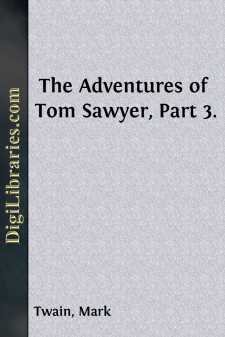Categories
- Antiques & Collectibles 13
- Architecture 36
- Art 48
- Bibles 22
- Biography & Autobiography 815
- Body, Mind & Spirit 144
- Business & Economics 28
- Children's Books 18
- Children's Fiction 14
- Computers 4
- Cooking 94
- Crafts & Hobbies 4
- Drama 346
- Education 58
- Family & Relationships 59
- Fiction 11833
- Games 19
- Gardening 17
- Health & Fitness 34
- History 1378
- House & Home 1
- Humor 147
- Juvenile Fiction 1873
- Juvenile Nonfiction 202
- Language Arts & Disciplines 89
- Law 16
- Literary Collections 686
- Literary Criticism 179
- Mathematics 13
- Medical 41
- Music 40
- Nature 179
- Non-Classifiable 1768
- Performing Arts 7
- Periodicals 1453
- Philosophy 65
- Photography 2
- Poetry 896
- Political Science 203
- Psychology 44
- Reference 154
- Religion 515
- Science 126
- Self-Help 85
- Social Science 82
- Sports & Recreation 34
- Study Aids 3
- Technology & Engineering 59
- Transportation 23
- Travel 463
- True Crime 29
Our website is made possible by displaying online advertisements to our visitors.
Please consider supporting us by disabling your ad blocker.
Sketches New and Old, Part 1.
by: Mark Twain
Description:
Excerpt
My beautiful new watch had run eighteen months without losing or gaining, and without breaking any part of its machinery or stopping. I had come to believe it infallible in its judgments about the time of day, and to consider its constitution and its anatomy imperishable. But at last, one night, I let it run down. I grieved about it as if it were a recognized messenger and forerunner of calamity. But by and by I cheered up, set the watch by guess, and commanded my bodings and superstitions to depart. Next day I stepped into the chief jeweler's to set it by the exact time, and the head of the establishment took it out of my hand and proceeded to set it for me. Then he said, "She is four minutes slow-regulator wants pushing up." I tried to stop him—tried to make him understand that the watch kept perfect time. But no; all this human cabbage could see was that the watch was four minutes slow, and the regulator must be pushed up a little; and so, while I danced around him in anguish, and implored him to let the watch alone, he calmly and cruelly did the shameful deed. My watch began to gain. It gained faster and faster day by day. Within the week it sickened to a raging fever, and its pulse went up to a hundred and fifty in the shade. At the end of two months it had left all the timepieces of the town far in the rear, and was a fraction over thirteen days ahead of the almanac. It was away into November enjoying the snow, while the October leaves were still turning. It hurried up house rent, bills payable, and such things, in such a ruinous way that I could not abide it. I took it to the watchmaker to be regulated. He asked me if I had ever had it repaired. I said no, it had never needed any repairing. He looked a look of vicious happiness and eagerly pried the watch open, and then put a small dice-box into his eye and peered into its machinery. He said it wanted cleaning and oiling, besides regulating—come in a week. After being cleaned and oiled, and regulated, my watch slowed down to that degree that it ticked like a tolling bell. I began to be left by trains,
I failed all appointments, I got to missing my dinner; my watch strung out three days' grace to four and let me go to protest; I gradually drifted back into yesterday, then day before, then into last week, and by and by the comprehension came upon me that all solitary and alone I was lingering along in week before last, and the world was out of sight. I seemed to detect in myself a sort of sneaking fellow-feeling for the mummy in the museum, and a desire to swap news with him. I went to a watchmaker again. He took the watch all to pieces while I waited, and then said the barrel was "swelled." He said he could reduce it in three days. After this the watch averaged well, but nothing more. For half a day it would go like the very mischief, and keep up such a barking and wheezing and whooping and sneezing and snorting, that I could not hear myself think for the disturbance; and as long as it held out there was not a watch in the land that stood any chance against it. But the rest of the day it would keep on slowing down and fooling along until all the clocks it had left behind caught up again. So at last, at the end of twenty-four hours, it would trot up to the judges' stand all right and just in time. It would show a fair and square average, and no man could say it had done more or less than its duty. But a correct average is only a mild virtue in a watch, and I took this instrument to another watchmaker. He said the king-bolt was broken. I said I was glad it was nothing more serious. To tell the plain truth, I had no idea what the king-bolt was, but I did not choose to appear ignorant to a stranger.
He repaired the king-bolt, but what the watch gained in one way it lost in another. It would run awhile and then stop awhile, and then run awhile again, and so on, using its own discretion about the intervals. And every time it went off it kicked back like a musket. I padded my breast for a few days, but finally took the watch to another watchmaker. He picked it all to pieces, and turned the ruin over and over under his glass; and then he said there appeared to be something the matter with the hair-trigger. He fixed it, and gave it a fresh start. It did well now, except that always at ten minutes to ten the hands would shut together like a pair of scissors, and from that time forth they would travel together. The oldest man in the world could not make head or tail of the time of day by such a watch, and so I went again to have the thing repaired. This person said that the crystal had got bent, and that the mainspring was not straight. He also remarked that part of the works needed half-soling. He made these things all right, and then my timepiece performed unexceptionably, save that now and then, after working along quietly for nearly eight hours, everything inside would let go all of a sudden and begin to buzz like a bee, and the hands would straightway begin to spin round and round so fast that their individuality was lost completely, and they simply seemed a delicate spider's web over the face of the watch....












